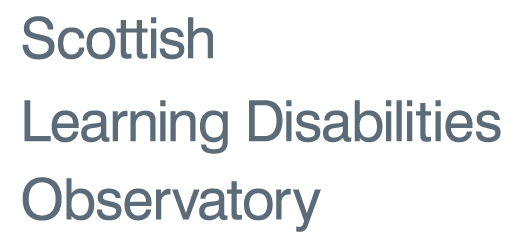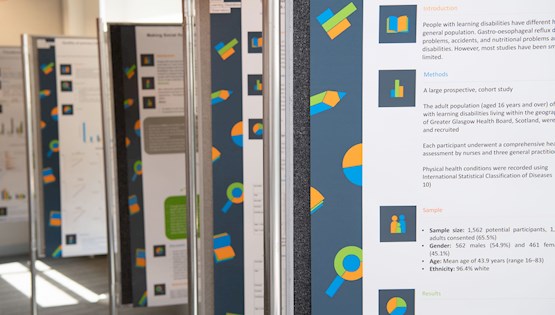Health and care experiences
In this short film people with learning disabilities tell us about their experiences of health and health care.
News

SLDO Conference - registration now open
Join us on Thursday 11th December 2025 to mark 25 years of learning disabilities research at the University of Glasgow. We’ll be celebrating the many valued partners and collaborators who have worked with us over the years, while sharing details of the latest research innovation and impact from the Scottish Learning Disabilities Observatory, and highlighting opportunities for future research collaborations. This free event is open to anyone who is interested in our research and we welcome attendees from all backgrounds and sectors. Register via this link https://bit.ly/4nGNVhC

SLDO Director leads new study to develop pioneering cancer detection technology
Professor Deborah Cairns, Director of the Scottish Learning Disabilities Observatory has been awarded the CRUK Early Detection and Diagnosis Primer Award, together with Professor Yang Wei at Nottingham Trent University, to develop an innovative Smart Bra that can detect breast cancer. Read about this new research.
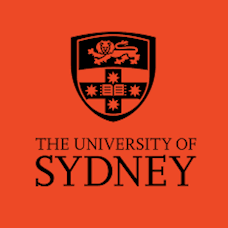
Sydney/Glasgow collaboration looks to innovative tech to improve bowel cancer screening for people with learning disabilities
At the end of June, Dr Julie Ayre and Dr Janelle Weise from the University of Sydney visited the University of Glasgow’s School of Health and Wellbeing to meet with colleagues at the Scottish Learning Disabilities Observatory and Cancer Behaviour Research Group. Julie presented her work on generative AI and health literacy, and Janelle presented her work on breast cancer screening and people with learning disabilities. Julie and Janelle are currently collaborating with University of Glasgow colleagues Professor Katie Robb, Professor Deborah Cairns, Dr Lauren Fulton, and Research Assistant Martin Nemec on a new project, Leveraging AI to support colorectal cancer screening for people with an intellectual disability.
This project was funded by the University of Glasgow-University of Sydney Health Inequalities Initiative and aims to test the acceptability of using voice AI technology to help support people with learning disabilities through the bowel screening process. This work will lead to further collaborations between the University of Glasgow and University of Sydney. More information about all of this research will be available soon. If you'd like to know more about the research at this early stage, please get in touch via sldo-info@glasgow.ac.uk.

New resource for families & carers navigating the post-school transition period for a young person with developmental disabilities
Researchers at the Scottish Learning Disabilities Observatory and members of neuro-affirming charity DIFFERAbled have co-developed a new information resource, created to support families navigating the post-secondary school transition and beyond. It brings together guidance and information drawn from the learned experience of parents and carers of neurodivergent young people and young people with developmental disabilities, as well as a description of services that parents can access for advice and support. Find out more and access this free resource here.
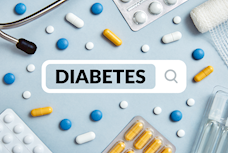
New survey about living with Diabetes and Learning Disability
Diabetes UK, Queen’s University Belfast and the University of Glasgow are working in partnership to understand more about what is most important in the lives of people with lived experience of learning disabilities (Types 1 and 2) and diabetes. The research team have developed a survey to gather information about how people with learning disabilities manage their diabetes and what their priorities are. This information will be used to help inform research and practice, and address the issues that matter most to people with learning disabilities and diabetes.
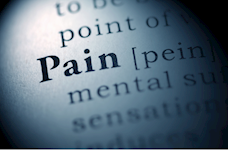
SLDO hosts international workshop on pain care for people with learning disabilities
On 17th June we will be hosting an international workshop on pain care for people with learning and developmental disabilities. We will welcome guest speakers, Tim Oberlander, Frank Symonds, Brian McGuire and Chantel Burkitt along with SLDO Doctoral student Christine Pacitti to share their expertise in this area of health research. Find out more about the speakers and how to register.
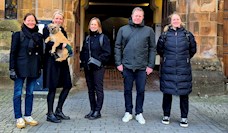
SLDO team receives international collaboration award
Dr Arlene McGarty and Professor Deborah Cairns from the Scottish Learning Disabilities Observatory recently received the Scottish Universities Life Sciences Alliance (SULSA) International Collaboration award to strengthen relations with the University of Adger and the Norwegian University of Science and Technology (NTNU) in Norway.
After a successful visit to Norway in January, researchers from the University of Adger and NTNU joined Deborah and Arlene in Glasgow in March to discuss their planned research on cardiovascular health in adults with learning disabilities, along with discussions about future collaborations based on their expertise in digital health and disabilities.
Latest SLDO research

Reports & publications
We publish reports relevant to learning disabilities and autism policy and practice.
View our full list of reports and publications here.
Population profiles
Population characteristics
26,349
with learning disabilities
31,712
with autism
5,295,402
all people
Health
15.2%
with learning disabilities
37.4%
with autism
52.5%
all people
Housing and accomodation
11,886
Rented from council or housing association
8,927
Private ownership
2,203
Rented privately or living rent free
Employment and Education
12,098
Long term sick or disabled
2,460
in paid employment
1,975
students
1,934
retired
2,648
other
Family
53.3%
with learning disabilities
82.7%
with autism
78.3%
all people
Health and social care spending
2014/15
£250,188,001
Health care spending
£697,310,000
Social care spending
Other topics
Country of birth
25,599
with learning disabilities
30,689
with autism
4,926,119
all people
Language spoken at home
321
with learning disabilities
465
with autism
80,791
all people
Ethnicity
20,875
with learning disabilities
26,842
with autism
4,382,131
all people
